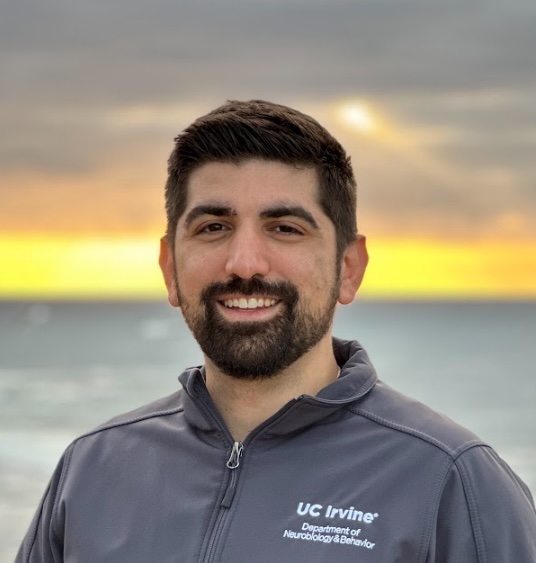
The University of California, Irvine Institute for Memory Impairments and Neurological Disorders (UCI MIND) is proud to announce that postdoctoral fellow Jean Paul Chadarevian, PhD, has been awarded a prestigious grant from the Larry L. Hillblom Foundation. The three-year, $225,000 award will support Dr. Chadarevian’s innovative research into the role of peripheral immune cells in the development and progression of Alzheimer’s disease (AD). Working in the laboratory of Dr. Mathew Blurton-Jones, Professor of Neurobiology and Behavior at UCI, Dr. Chadarevian will investigate how immune cells that originate outside the brain infiltrate it and contribute to the disease’s pathology.
The project addresses a critical and evolving area of neuroimmunology. Inflammation in the brain, or neuroinflammation, is a key component of Alzheimer’s disease. For many years, this was thought to be driven primarily by the brain’s resident immune cells, known as microglia. However, there is growing evidence that immune cells from the bloodstream can cross the highly selective blood-brain barrier, enter the brain, and influence the course of neurodegenerative diseases, though their exact impact remains a subject of intense investigation.
Dr. Chadarevian’s project, titled “Examining the impact of peripheral monocyte-derived macrophage infiltration in AD Pathogenesis,” will directly tackle this question. His research will use novel chimeric models and multiomic approaches to compare the function of brain-resident human microglia to that of human monocyte-derived macrophages that have infiltrated the brain. This approach will allow his team to determine if the infiltrating cells help clear away AD pathology or if they exacerbate the neuroinflammation that damages brain cells.
“I am incredibly grateful to the Larry L. Hillblom Foundation for this generous support,” said Dr. Chadarevian. “This fellowship provides a fantastic opportunity to delve into the complex role of the immune system in Alzheimer’s disease. By understanding how immune cells from the body interact with the brain, we hope to identify new targets for therapies that could slow or even prevent the progression of this devastating disease. I am excited to embark on this research here at UCI MIND, an institution at the forefront of Alzheimer’s research.”
